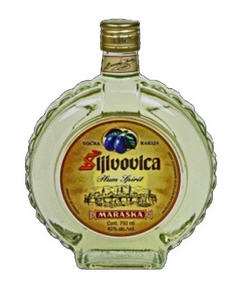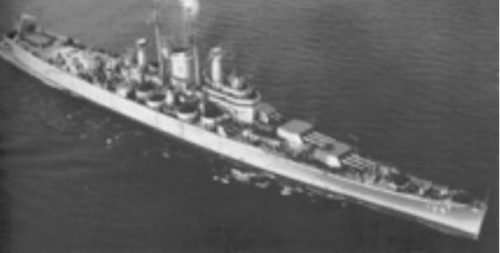Slivovitz
Editor’s Note: I had lunch with Annie, the den-mother of our fractious group of brash officers who inhabited the back room at the Navy Office of Legislative Affairs in the Pentagon. There were some stories to be had in that office, let me tell you. They were about the trips we arranged for Congressional members and their staffs, and tales about all of us, and what astonishing things we had participated in representing the Department on behalf of you, the taxpayer. We talked about some of that, but we talked about Annie’s Mom, who was a marvelous lady I had a chance to meet a decade ago, just about this same festive time of the year. Like Mac, she is gone now, and I am glad I had a chance to meet her when I did, and hear some of her story. See, she was living in Belgrade, capital of the Jug-Land when Mac and his party were dining with Tito. She is the only other person I will ever meet that has that distinction, except of course Annie herself, who was sitting across from me at Two Chefs Restaurant. It was a great lunch. Annie has some stories herself, and who knows, maybe she will share them some time.
– Vic
Slivovitz

Did you ever hear of Slivovitz?
It is a plum brandy that is made in Eastern Europe, and notably Yugoslavia. Rene LaPlante could have told you about it, since it is one of the tools of the trade. “Plum brandy” sounds like something your great aunt might break out with the holiday fruitcake, and she might, if she was a heavy-duty woman.
What she would be bringing out was rocket fuel. Distilled properly, slivovitz is more than a hundred proof, and can have the impact of be pure grain alcohol. It has loosened more tongues than anything this side of fiery Italian grappa, which is how it relates to Evelyn and Rene, and the story I just heard from my pal Mac, who is a long-retired Spook.
Slivovitz and Tito is where the story goes, but it is very strange and needs a bit of context to really appreciate.
Evelyn LaPlante got out of the spy business in 1947, just ahead of the “Informbiro.” That is the term the Jugs use for the breakdown in relations between Stalin and Josef Broz Tito. The word is shorthand for the Communist Information Bureau, the Soviet-dominated propaganda organization that set the policy line for the new Soviet satellite states of Eastern Europe.
Some of the clients had actually wanted to attend the Paris Conference on the Marshall Aid Plan, and Stalin obviously could not countenance that.
The Bureau had a brief run in Belgrade, but by 1948, it packed up and left. Tito was officially denounced by Moscow, and accused of “departing from Marxism-Leninism” and “exhibiting an anti-Soviet attitude.”
These were serious accusations, though they sound a bit quaint today. If you add a lot of slivovitz they drip with menace. That was reflected in the situation that convinced Evelyn that Stateside was the place for her and her little daughter Ann. Tito would open and close the border capriciously, in tune with a rhythm of the dance with Moscow. She got out when the opportunity presented itself in 1947, the year the Information Bureau was established and things were very edgy.
Stalin contemplated sending assassins to take out Tito. It was said when the charismatic leader in Belgrade was informed of the plot, he smiled grimly. He told his advisors that if anyone came for him, there would be two Jugs headed tight back for Moscow, and that would be the end of that.
There was a lot of bravado contained in that threat, and Tito cast about for the pivot point in the crisis with the Russians. Ann’s Dad, Warrant Officer Rene LaPlante stayed in Belgrade as the crisis deepened, and was sent home when the Informbrio was expelled, and party purges of alleged Titoists throughout Europe began. Rene’s services were needed elsewhere.
It took a lot of slivovitz to consolidate good order in the new Soviet empire, and nearly three years for Tito to culminate a bold strategy to balance the power of the East with the Power of the West. That is how my pal Mac entered The Balkan Problem came in 1951.
At the time, Mac was on the staff of the Commander in Chief, U.S. Naval Element-Europe. The command was normally located in London, in Ike’s former headquarters on North Audley Street. At this moment, though, it had re-located to Naples, where he and his family lived in an elegant if somewhat threadbare apartment on the Napolitian economy.
The Jugs approached the Americans in Belgrade, and indicated that Tito wanted to talk.
Something dramatic was cooked up in short order. In December, 1951, Mac was a Lieutenant Commander, and he was nominated for the special collection mission by the SIXTH Fleet intelligence officer, CDR Fred Welden. With LT Art Newell, Mac reported to the fleet flagship, the heavy cruiser USS Des Moines.

(USS Des Moines (CA-134) in the Adriatic, 1951. Photo USN).
Vice Admiral Matthias Bennett Gardner flew his Fleet Commander’s flag on the 17,000-ton cruiser. She was a remarkable floating statement. Roomy enough to handle the requirements of the embarked staff, she cut a suitably martial profile. She bristled with a main battery of nine improved eight-inch guns, twelve five-inch turrets on the superstructure forty-four assorted anti-aircraft guns.
With a bone in her teeth, she could make thirty-three knots and keep up with fast carrier, and carried a crew of 1,800 officers and Sailors.
She was just the platform for this special assignment. She was about to make the first American naval visit to Yugoslav waters since the end of World War II. It was a ceremonial visit, which Tito intended to stick right in Uncle Joe Stalin’s teeth. It was a bold move for the Jug leader, taunting his former mentor in Moscow, and the US Navy was happy to accommodate him.
Just before Christmas, the Cruiser got underway and made for the ancient Croatian port of Rijeka, sometimes known by its Italian name of Fiume.
There was going to be a mission of extraordinary daring, and it would feature slivovitz before dinner, slivovitz during dinner, and slivovitz toasts of friendship in the drawing room after.
That is the story that became a chapter in Mac’s biography, how Mac came to have dinner with Marshall Tito, the leader of all the Jugs, and the extraordinary party at the residence of the Naval Attaché the last night Des Moines was in port.
The power of slivovitz cannot be underestimated. Diplomacy used to be a lot more muscular, and certainly a lot more fun, you know?
Copyright 2016 Vic Socotra
www.vicsocotra.com
